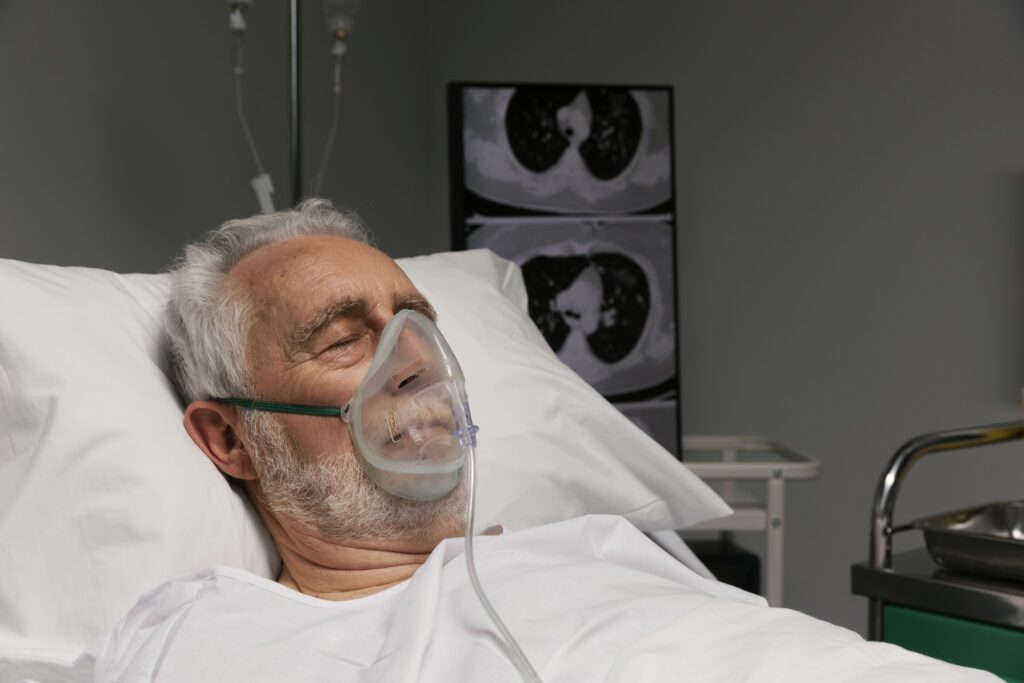CPAP therapy is considered one of the best treatments for obstructive sleep apnea (OSA). During this condition, the patient struggles with proper breathing while sleeping. This condition causes an interruption in breathing, also affecting their sleep. For overall wellness, an individual must be sleeping and breathing properly.
A CPAP machine is specially tailored to assist patients in breathing regularly while they peacefully sleep. There are numerous advantages of using a CPAP machine, such as improving sleep quality, reducing daytime fatigue, and lowering the risk of serious health complications. However, one thing that most of the CPAP users find difficult is struggling with getting adjusted to the whole idea of using a CPAP machine all night and using a mask while sleeping. They also wonder if it is crucial to use a CPAP machine or if they can take regular breaks.
In this article, we will help you understand the importance of using a consistent CPAP. Also, we will discuss whether your health will be impacted due to inconsistent therapy and the role it plays in managing sleep apnea. This comprehensive guide will help you make informed decisions about their treatment routine. In short, we will get an insight into we will explore why regular use of CPAP is generally recommended and how frequently it should be used.

What is a CPAP machine?
in keeping the airway open during sleep and preventing loud snoring. Along with that, it also prevents gasping and dangerous breathing pauses, one of the most known symptoms of sleep apnea. It effectively provides an appropriate treatment for sleep apnea or other respiratory conditions, leading to overall health and quality of life.
The Importance of Consistent CPAP Use
Unfortunately, “sleep apnea never sleeps” means it is not a condition that takes breaks. It does not matter whether you are sleeping at night or taking a nap (during the day); your airways can get impacted, especially if you are not treating your condition. This medical device is specially tailored to keep your airway open throughout when you sleep. The following are the benefits that make this device indispensable:
- Ensuring more restful sleep also reduces daytime fatigue (the most common issue that most patients struggle with) and reduces the risk of accidents.
- CPAP prevents airway obstruction, offering more restorative, deep sleep. Leading to an improved sleep quality essential for promoting wellness.
- Consistent use of CPAP has been shown to lower blood pressure and reduce cardiovascular risks.
- Poor sleep quality significantly affects health. However, by using a CPAP machine regularly, you can get proper sleep, which plays a crucial role in improving cognitive functions and reducing symptoms of depression.
What Happens If You Skip CPAP Occasionally?
Some individuals question whether they can go without CPAP on nights when they feel “fine” or during naps. While occasional skipping may seem harmless, research and clinical experience suggest this can undermine the treatment’s effectiveness. Potential consequences of inconsistent CPAP use include:
Individuals, especially those who are new to CPAP therapy, often have one common question: whether they can go without CPAP on nights. They, unfortunately, have a misconception that they can easily avoid during naps. Occasional skipping seems harmless to them. However, this can reduce the treatment’s effectiveness and can significantly impact health.
Here is how your health gets impacted due to inconsistent CPAP use:
- First of all, if you are not using a CPAP machine regularly, then there is a high chance that symptoms can return quickly. No matter how well you are feeling and confident, especially in the case of severe sleep apnea, your symptoms are unpredictable.
- A single night without CPAP can increase blood pressure and strain on the heart.
- Avoiding CPAP therapy means a high chance of symptoms returning, which can disturb your sleep. If the issue remains prevalent, then it can lead to daytime sleepiness, reduced concentration, and impaired judgment. Due to these symptoms, you might feel that your ability to do daily activities is also getting affected, which can be disturbing.
- By not being consistent with your therapy, you can delay improvements in health outcomes and quality of life.
It is important to understand that even brief naps without CPAP can trigger apnea episodes.
Factors That Influence CPAP Use
We understand that sticking to CPAP therapy is difficult, as many factors contribute to making it challenging, which might compel the CPAP user to avoid therapy. Some of the common reasons or circumstances that may be influencing this are that most individuals want to avoid the burden of packing a CPAP machine during travel, as traditional ones are typically bulkier in size. Also, those who are beginners and are not used to therapy might find it difficult to adjust. It might take some time and patience. You can look for a portable CPAP machine or look for a mask that is comfortable and does not feel too tight to the skin, making it easy for you to accept the idea of getting adapted to the machine and therapy. Also, if your healthcare specialist is considering changes in health status or treatment plan modifications, temporary pauses might be required in this case. Some people with mild OSA or apnea might be dealing with a certain sleeping position (such as sleeping on their back), and they might get some flexibility after consulting with a doctor.
Tips for Improving CPAP Adherence
- Ensure that your mask fits easily without excessive tightness or leaks. To find the best CPAP mask in Pakistan, it is recommended to try different mask styles.
- Regular cleaning prevents odor and improves comfort.
- Using a humidifier with CPAP can be a great investment for enhancing your overall therapy experience.
- Get professional support if you are dealing with issues that are compelling you to skip therapy.
